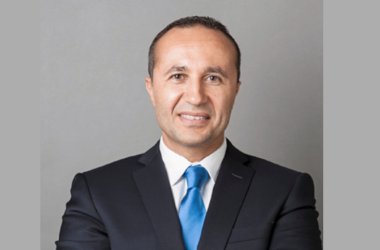HP on Monday announced the new ElitePad 900 tablet, with Windows 8, which the company says can be easily disassembled to replace components in order to save hardware and support costs.
The tablet, targeted at businesses, has a 10.1-inch diagonal display and runs on Intel’s Atom Z2760 dual-core processor (Clover Trail), which has a clock speed of 1.8GHz. The tablet weighs about 680 grams and is 9.2-millimeters thick. The Gorilla Glass screen can display images at a 1280 by 800 resolution.
The ElitePad 900 tablet originally started at US$699 for a unit with 32GB of storage, but HP is now reconsidering the price. The tablet will also be available with 64GB storage, and both models will become available in January. An SD card slot allows for expandable storage.
HP claims 10 hours of battery life on a single charge. Other features include a slot in which customers can drop their own SIM card. Customers can use their own data plans, or adopt HP’s mobile broadband plan. The PC maker has a few mobile carrier deals it will announce at another date. The tablet also has a high-definition camera in the front and an 8-megapixel camera in the back.
But a unique feature is the ability to easily disassemble the tablet and replace components like batteries, screens or motherboards. Tablets, much like smartphones, are highly integrated and difficult to service, with most tablet makers simply replacing units. In some cases, the tablet could become a paperweight beyond warranty, forcing buyers to purchase a new unit.
But HP has separated the motherboard, display, battery and case so the ElitePad 900 can be self-serviced by customers, saving the effort of sending a unit back to HP while giving the tablet a longer life-span, said Ajay Gupta, director of commercial notebook products at HP.
“Doing the breakdown of the cost, you’ve got the motherboard, display, digitisers, batteries, housing, and so at a minimum you can just replace the motherboard without replacing the cost of the whole system. That’s what drives the whole serviceability concept on the unit,” Gupta said.
The tablet is held together by latches and magnets instead of screws. A special tool provided by HP helps open up the tablet, giving access to the components.
“If anything needs to be serviced three years down the road and the battery life is no longer what it was in its first year, you can put a new battery. If the motherboard needs to be replaced, you can put a new motherboard. You can replace the display without sending the unit back to us and without worrying about compromising your data,” Gupta said.
But as is with highly integrated devices, there are some exceptions. For example, the storage is built into the motherboard, so that’s difficult to replace, Gupta said.
The ElitePad 900 succeeds the Slate 2, which was introduced in November last year with an older Atom tablet processor and Windows 7. The tablet was released after a rough period in which HP exited the consumer tablet business and decided to retain its PC unit after considering selling or spinning it off. This time, HP is approaching the market with caution, and is starting an extensive evaluation program for the tablet by sending it to 2,500 customers globally for testing before commercial release.
HP selected Intel’s Atom processor code-named Clover Trail to run Microsoft’s Windows 8, which Gupta described as a “full operating system.” The OS is more relevant to the business market and fits into existing corporate infrastructures that already use thousands of Windows applications, Gupta said. The Intel chip also delivers long battery life and requires no fan, Gupta said.
“The logic is driven by application compatibility. If you have existing applications that have been formatted by a 4:3 screen size now you can use them without having to reformat them, or do any recreation or rewriting of the software code,” Gupta said.
Alongside Windows 8, Microsoft will also ship Windows RT for tablets and PCs with ARM processors. A drawback of RT is it won’t run existing Windows applications. HP officials did not comment on whether RT was considered for the tablet, but said all processor and OS options are continuously being evaluated.
The company will also sell an ElitePad accessory called SmartJacket, a hard-cover case with an integrated keyboard, battery, two USB ports and an SD card slot. The ElitePad 900 slots into the jacket, and provides an extra eight hours of battery life to the tablet, while adding about 1 pound (453 grams) to the overall weight.
The tablet also provides manageability and serviceability found in the company’s EliteBook laptops, Gupta said.
The tablet has an HP BIOS which enables some features to be turned off when the tablet is in a specific location. The unit can also be bricked if lost or stolen, and HP is working with LANDesk on location-based services.
“If you need to do a mass update, you can do it on this unit,” Gupta said.
Other features on the tablet include NFC and Bluetooth capabilities.






